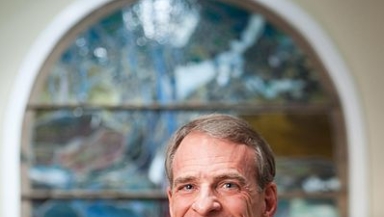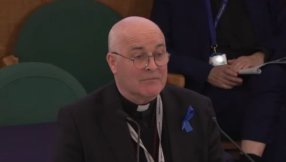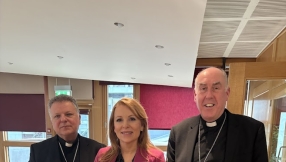
Many people who choose to reject Christianity often say that they can't believe in a system that replaces a need for evidence with a need for faith.
But as noted Christian apologist William Lane Craig pointed out this weekend, while he was reviewing Professor Peter Boghossian's 'A Manual for Creating Atheists', this is a false choice, as faith and evidence are not mutually exclusive.
In a review broadcast on Sunday on his online radio programme 'Reasonable Faith', Dr Craig and his co-host Kevin Harris, examine claims that Prof Boghossian makes about his book, and conclude that his ideas reflect a misunderstanding about what faith is.
Prof Boghossian says that he believes "faith is pretending to know things you don't know".
"Being a person of faith does not make you a good person. It just means you have a process of thinking about the world that is less likely to lead you to the truth.
"[Belief in] God is a conclusion you come to if you don't have a reliable epistemology."
Epistemology being the term from philosophy which is sometimes called 'the theory of knowledge'. In a similar way to a methodology being a theory of how we do something, epistemology is the theory of how we know something.
It is Prof Boghossian's view that people only believe in God if their theory of how to know things is broken, and faith is an example of such a theory.
But as Dr Craig explains, faith isn't a theory of how to know things: "Faith is not an epistemological category. It is not a way of knowing something. Faith is a way of trusting something.
"Faith is trusting in that which you have reason to believe is true. Once you have come to believe that something is true, using reliable epistemological means, you can then place your faith or trust in those things."
Dr Craig doesn't disagree with Professor Boghossian's logic, only the starting point that the faith is coming from.
He accepts that if someone were to construct things the way Prof Boghossian does, they will lean towards atheism.
"By construing faith as an epistemological category that is in competition with reason and evidence, Boghossian is going to wind up with scepticism about God's existence."
Prof Boghossian asserts that religious people need to come to the "adult table" to have mature conversations about their faith, but Dr Craig describes this view as "condescending" and accuses the professor of talking "as though theists haven't been presidents of the American philosophical association, and some of the most eminent philosophers and epistemologists of our day.
"These are people who understand all of the tools of critical thinking, logic and analysis. Who is he kidding?"
Despite the title of his book, 'A Manual for Creating Atheists', Prof Boghossian claims that is not what he is intending to do: "I'm not trying to convince anyone to be an atheist, I'm trying to convince people to lead thoughtful and examined lives.
"I am trying to convince people to have an epistemology, a way of coming to knowledge that is rooted in reason and evidence. If someone has an epistemology like this, the natural response of this will be not to believe in God."
Dr Craig agrees that if faith were what Professor Boghossian understands it to be, it would indeed merit attack, but it would also be very simple to refute.
Reflecting further on Prof Boghossian's definition of faith as "pretending to know things you don't know", Dr Craig replied: "Who would even need to write a book criticising that?"
But as Harris pointed out, it is hardly surprising that Prof Boghossian has such a view, when one of his courses at Portland University is entitled 'Jesus, the Easter Bunny, and other delusions'.













